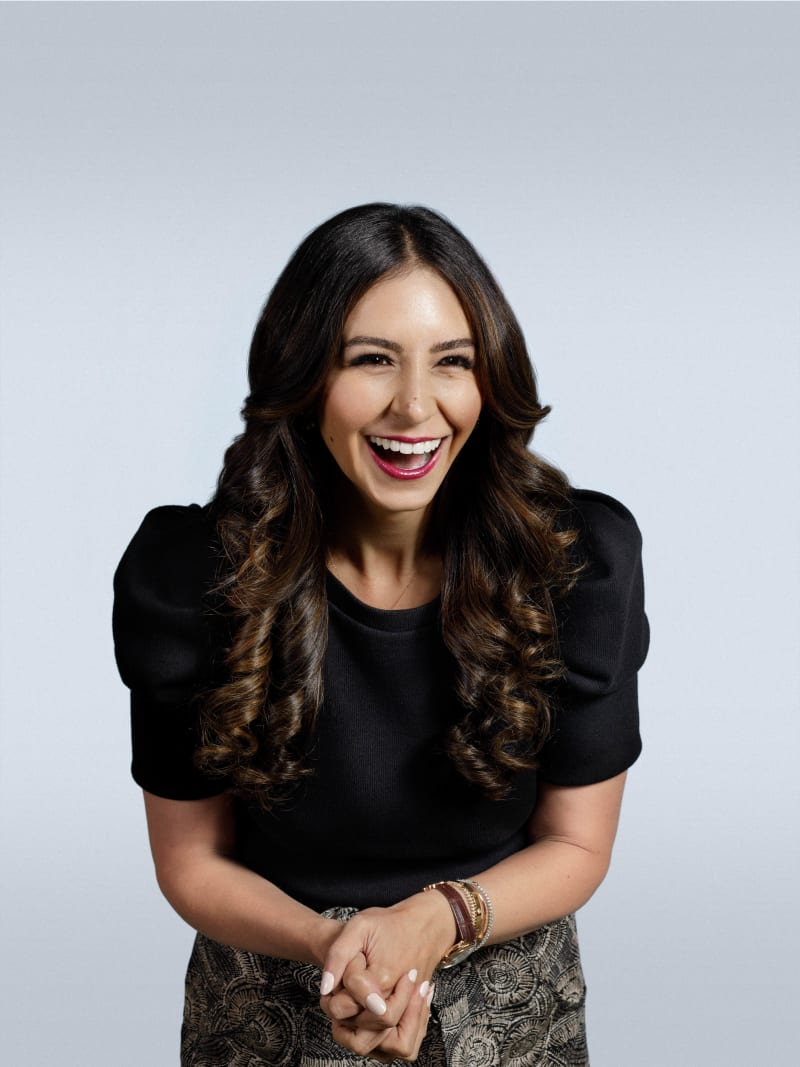Announcing Our Investment in H1: Creating a Healthier Future By Connecting the Dots in Healthcare

Amira Yahyaoui is the kind of founder who reminds me why I do what I do. Like other founders Lux seeks out, there is nothing ordinary or traditional about her. She does not present with the type of ‘pattern recognition’ that would pop up in a data analyst’s algorithm — no Stanford CS degree (or any formal degree for that matter), no previous multi-million dollar exit, no big tech company background. And yet there are few founders who have left such an indelible impression on me personally and have inspired such confidence in so many, who are inspired by her potential to build a truly ‘n of 1’ company.
At Lux, we look out for the rebel innovators — those who see a different future and dare to take on seemingly insurmountable problems; Amira is no exception. A Tunisian human rights activist who was exiled and became a refugee as a teenager, Amira has dedicated her life to forward progress. This is not hyperbole; Amira has literally put her life on the line for the causes she believes in. She has always known what ‘better’ should look like and would stop at nothing until she could help craft it. And that is exactly what she is seeking to do by founding Mos — starting first by taking on a critical problem in the U.S. — crippling student debt.
Indeed, student debt in the U.S. has skyrocketed to a staggering $1.5 trillion dollars, not only precluding many from attending college in the first place, but further limiting the ability of new graduates to pursue riskier careers, further education, or start their own entrepreneurial journeys. There are hundreds of billions of dollars of government and private scholarship funds available for students, but access to them is opaque and confusing. Mos automates the process for students, helping them streamline bureaucratic paperwork with a single application that checks over 30,000 eligibility criteria in a matter of 20 minutes. Mos pairs students with an advisor/advocate, who will guide them through any additional to-dos and even send tips to help them qualify for additional scholarships that they ‘almost’ qualify for. And if students don’t receive a financial aid package worth at least twice the amount they paid to sign up for Mos, they receive a full refund.
The COVID-19 pandemic has thrust so many of us into a new reality of chaos, confusion — and in many cases, catastrophe. Today, Mos announced that it has launched a critical COVID-19 Guide to help students synthesize and sort through resources and adapt to these unprecedented times. With so much uncertainty and misinformation abounding, I am heartened by the human ingenuity of companies such as Mos that rise to the occasion and can help provide solace and solutions to those who need it most. And this is only the beginning. The team behind Mos is as impressive, interdisciplinary, and gritty as Amira, and I have been blown away by each and every person on it (including a former colleague of mine from the State Department!). I look forward to being a part of their journey and learning from them.

This determined and dedicated founder — a political exile from Northern Africa, with no tech background and very few connections in San Francisco — realized through her experience with the Arab Spring just how powerful technology platforms could be in improving everyday lives and access to civic services. While my experience comes nowhere near the level of sacrifice or bravery of Amira, after spending time with her, I saw in her journey echoes of my own. The daughter of Iraqi immigrants, I had started my career after graduate school committed to building bridges between the Arab World and U.S. and had explored forays in academia, journalism, and public service, until eventually the Arab Spring too led me to Silicon Valley (where in fact, my first few years were actually focused on civic technologies at Google). Just as I became convinced that the public sector alone could not solve some of these recalcitrant problems, so too did I realize that big tech would not be the solution, and hence my entry into VC. I literally became a VC to find founders like Amira building companies like Mos taking on some of the world’s most challenging problems.
My own mother reminded me, when I gushed to her after meeting Amira, that Mos is the company I dreamed I would build when I was in college. I paid for my college education by myself, although I didn’t receive any financial aid from Harvard; in addition to working 1–3 jobs at a time, I earned over $120,000 in outside scholarships that I had to scrape the internet to find — from $1,000 from a local air conditioning company to $20,000 from Coca Cola. Once I got into school, I consulted on the side to help other students find similar scholarships and dreamed that technology could solve this problem at scale for more students. Enter Mos, a decade and a half later.
We’re proud to be backing Mos, alongside our friends at Sequoia Capital, Emerson Collective, and investors such as Zoom’s Eric Yuan, Stephen Curry, Jay Z/Roc Nation, John Doerr, and Garrett Camp/Expa. At Lux, we pride ourselves in investing in the people inventing the future. We’re thrilled to be backing Mos — not only for the enabling access it offers to essential information students need to graduate without debt — but because its technology will catalyze future inventors as well. Amira’s iconoclastic spirit and commitment to progress give us hope in the promise of Mos — starting with resources today for those impacted by COVID-19.
